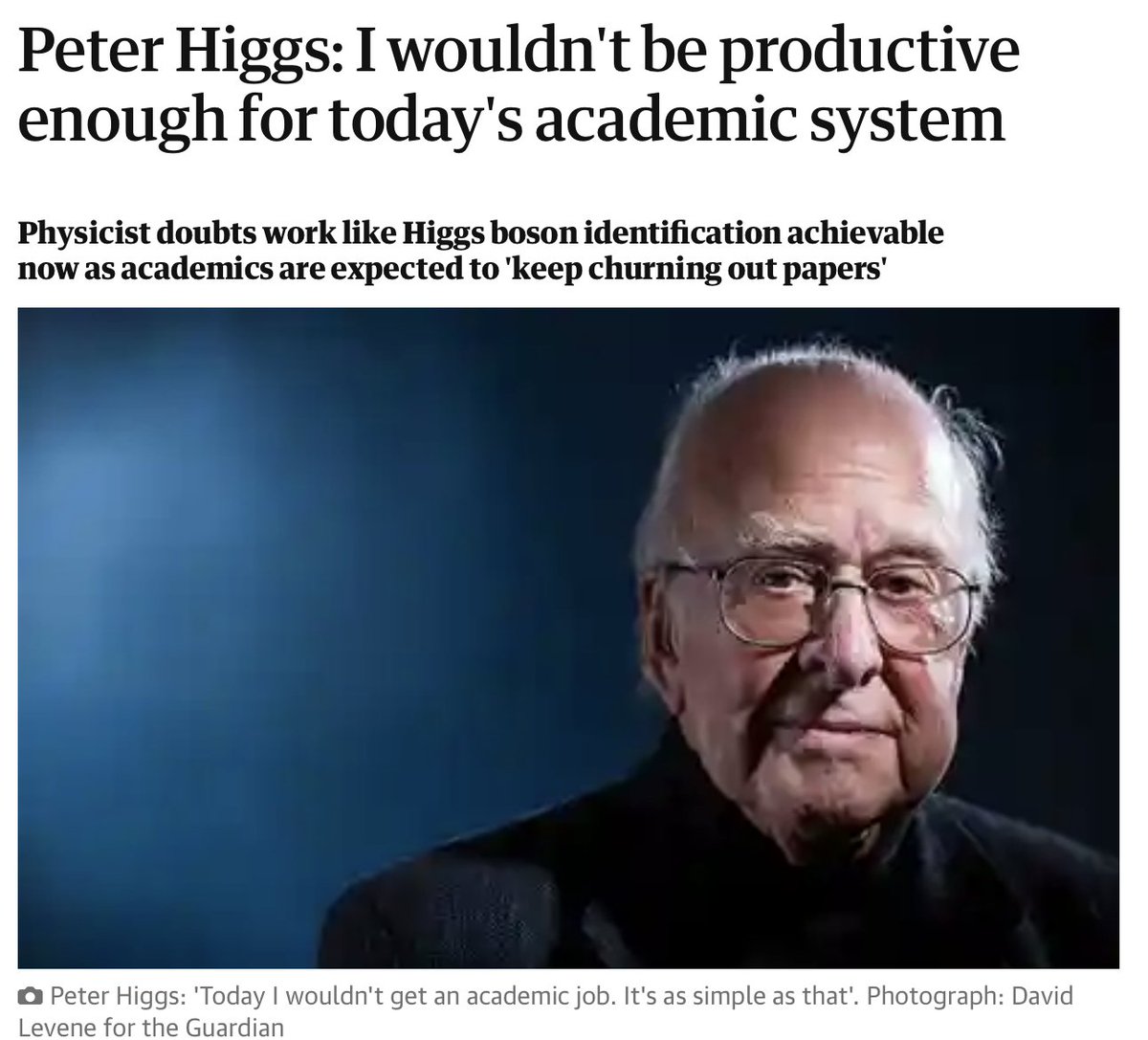
Peter Higgs believes he would be regarded as “unproductive" in today’s academic system. He simply wouldn’t be able to “survive” in #science.
On his way to Stockholm to receive a Nobel Prize in 2013, he said the following in an interview to Guardian:
#AcademicTwitter #phdlife
On his way to Stockholm to receive a Nobel Prize in 2013, he said the following in an interview to Guardian:
#AcademicTwitter #phdlife

- He wouldn’t expect to make a breakthrough in today’s academia.
Why? Because expectations to "collaborate and keep churning out papers" are too high
"It's difficult to imagine how I would ever have enough peace and quiet in the present sort of climate to do what I did in 1964"
Why? Because expectations to "collaborate and keep churning out papers" are too high
"It's difficult to imagine how I would ever have enough peace and quiet in the present sort of climate to do what I did in 1964"
- He said he would've been fired had he not been nominated for the Nobel in 1980.
Why? He published fewer than 10 papers after his groundbreaking work in 1964.
Why? He published fewer than 10 papers after his groundbreaking work in 1964.
Why wasn’t he kicked out?
His university (employer) decided that he “might get a Nobel prize – and if he doesn't we can always get rid of him".
His university (employer) decided that he “might get a Nobel prize – and if he doesn't we can always get rid of him".
- Higgs said he became "an embarrassment to the department when they did research assessment exercises".
Why? Because when the department said "Please give a list of your recent publications”, Higgs replied he had none.
Why? Because when the department said "Please give a list of your recent publications”, Higgs replied he had none.
- When he retired in 1996, he was convinced that science is no longer done in the way he liked.
“It wasn't my way of doing things any more”.
“Today I wouldn't get an academic job. It's as simple as that. I don't think I would be regarded as productive enough.” said Peter Higgs
“It wasn't my way of doing things any more”.
“Today I wouldn't get an academic job. It's as simple as that. I don't think I would be regarded as productive enough.” said Peter Higgs
This was in 2013. What about today?
I think this story can give you a sense of how “enterprise-centered” and metrics-oriented the academic system has become.
I think this story can give you a sense of how “enterprise-centered” and metrics-oriented the academic system has become.
Although this system has its own advantages (!), I still feel that we may have missed many interesting and important discoveries.
In essence, science requires perseverance and time. Not entrepreneurship.
Entrepreneurship should be a byproduct. Not the goal.
In essence, science requires perseverance and time. Not entrepreneurship.
Entrepreneurship should be a byproduct. Not the goal.
It’s strange to see the Nobel prize as a “life saver” for a scientist who has changed our understanding of how the Universe works.
Link to the article in Guardian:
_www.theguardian.com/science/2013/dec/06/peter-higgs-boson-academic-system
_www.theguardian.com/science/2013/dec/06/peter-higgs-boson-academic-system
• • •
Missing some Tweet in this thread? You can try to
force a refresh








